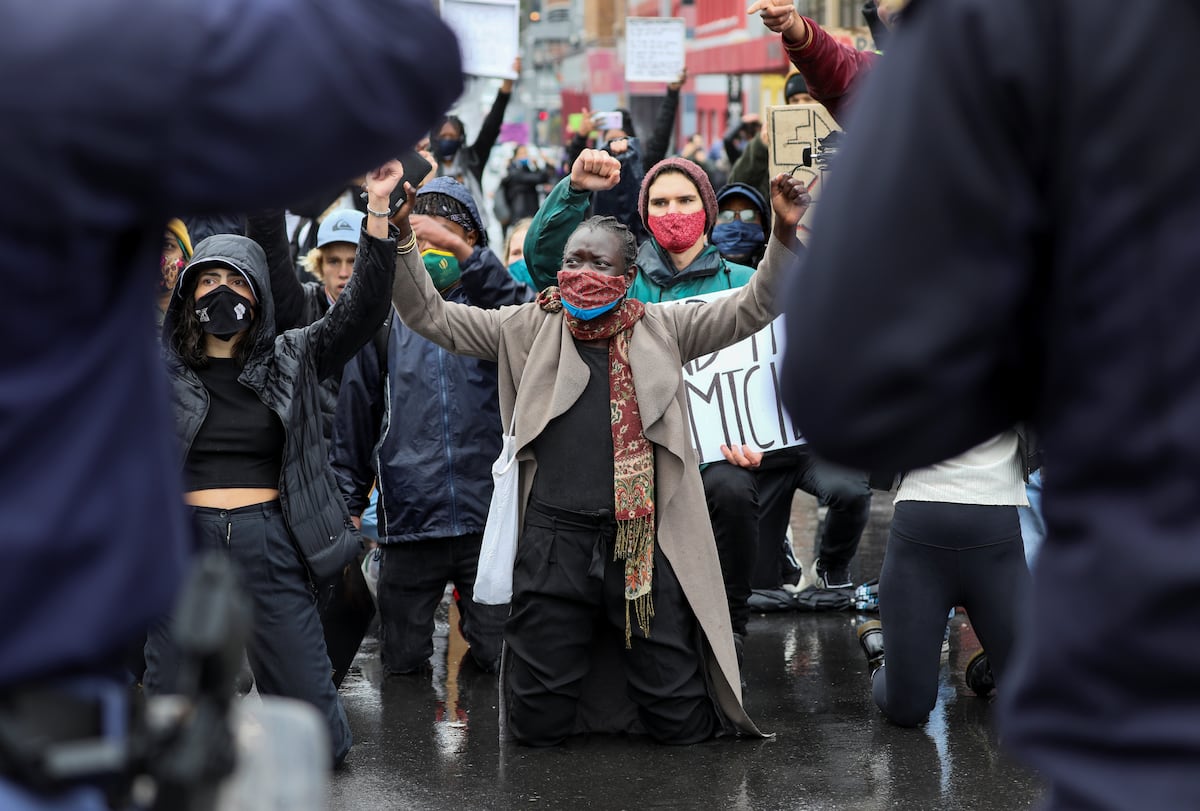In April, much-loved Nigerian gospel singer Osinachi Nwachukwu was killed by her husband.
The accounts of her relatives and friends indicate that, despite the severe mistreatment she suffered from her, she stayed with her husband because she hoped things would get better.
Her situation is nothing extraordinary.
Kenyan actress Idah Alisha recently opened up about the violence she experienced before divorcing her husband, a young herdsman.
If these famous and powerful women are also not safe from domestic violence, how many will be trapped in similar situations?
A silent epidemic is raging in communities across the continent.
According to Iheoma Obibi of Alliances for Africa, cases in Nigeria are on the rise.
And the 2014 Kenya Demographic and Health Survey found that of 5,657 women surveyed aged 15-49, 47.4% had experienced physical or sexual violence.
In South Africa, before the pandemic, medical complications from intimate partner violence were the second leading cause of illness after HIV/AIDS.
Unlike Nwachukwu, whose story eventually came to light because she was famous, the deaths of many other women remain silent.
And because legal prosecution for such violence is costly, many survivors never get justice.
In addition, from our daily work with women and girls, we know that cases of domestic violence are rarely reported, due to the shame and stigma for the victims.
This is part of a larger problem.
Too often, cultural beliefs and patriarchal norms encourage secrecy around women's health issues.
Traditionally, some believe that men have the authority to discipline women, through abuse or deprivation, and that they have the right to beat their wives if provoked.
When Alisha told the pastor that she officiated at her wedding about the violence she suffered, the pastor responded that she deserved it.
In her vision, the problem was her and she had to try harder to fulfill her role in the marriage.
As many African countries are highly religious, institutions of faith can be a powerful tool in dealing with domestic violence.
But first, religious leaders need to acknowledge the problem, rather than exacerbate it.
It is very common that when victims go to church to ask for help they are advised to pray and to be like the woman in Proverbs, 31: totally loyal and submissive wives.
As in the book of Proverbs, it is assumed that the man is innocent and that the woman is to blame for everything.
According to World Bank statistics, 51% of African women say that hitting women can be justified
Many women internalize these beliefs.
The 2018 Nigerian Demographic and Health Survey found that 28% of Nigerian women believe that a husband has the right to beat his wife if she burns food, argues with him, goes out unannounced, neglects the children or refuses to have sex
And according to World Bank statistics, 51% of African women say that beating women can be justified, and a third report having had experience of it.
To tackle this problem, governments and NGOs must invest seriously in changing the attitudes of adolescents (girls and boys), starting in schools, where domestic violence prevention should be part of the curriculum.
The authorities also need to find ways to reduce the cost of accessing legal services for victims.
And religious leaders, for their part, must create educational tools and disciplinary committees to oversee members of their congregations.
Given the great influence they have in Africa, their intervention can go a long way in curbing this threat.
Finally, NGOs must make an effort to raise awareness, carry out public communication campaigns to discourage male violence and help victims to denounce it.
Women must understand that even if they adhere to traditional cultural beliefs and norms, they cannot abide by them if they are dead.
If your husband puts your life at risk, you should walk away and find a safe place.
Nwachukwu's death is receiving full attention from the media and the police.
But there are countless women who experience domestic violence and do not get justice.
Religious, political and civil society leaders need to intervene to end this scourge.
We can't wait for it to happen to another celebrity to draw attention to this topic: enough is enough.
Tijani Salami
is a medical doctor and sexual and reproductive health expert and founder of the Sisters Caregivers Project Initiative.
Jane Otai
is a development worker in Kenya and runs the Empowered Girls Initiative.
Translation: Esteban Flamini. Copyright: Project Syndicate, 2022
You can follow PLANETA FUTURO on
,
and
, and subscribe
to our 'newsletter'
here
.

